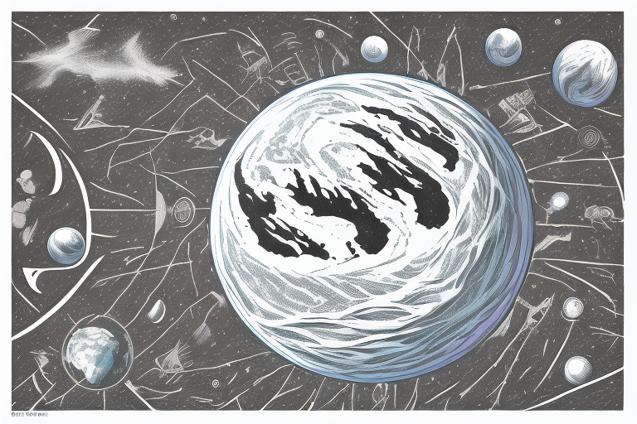
Discover why educating others about ocean conservation is crucial for protecting our planet's most vital resource and how you can make a difference.
The Importance of Educating Others About Ocean Conservation
As sailors and ocean enthusiasts, we have a unique connection to the sea and its vast, mysterious beauty. We also have a responsibility to protect and preserve this incredible resource for future generations. One of the most effective ways to do this is through education and advocacy. In this article, we will explore the importance of educating others about ocean conservation, the challenges our oceans face, and how we can all play a part in protecting them.
The State of Our Oceans
Before we dive into the importance of education, let’s take a moment to understand the current state of our oceans and the challenges they face. Our oceans cover more than 70% of the Earth’s surface and are home to an estimated 50-80% of all life on our planet. They provide countless benefits to humans, including food, oxygen, climate regulation, and recreational opportunities.
However, our oceans are under threat from a variety of human activities, including:
-
Overfishing: Overfishing occurs when more fish are caught than the population can replace through natural reproduction. This can lead to the collapse of entire fish populations and the loss of important marine ecosystems.
-
Pollution: Our oceans are becoming increasingly polluted with plastic waste, chemicals, and other harmful substances. This pollution can harm marine life, disrupt ecosystems, and even enter the human food chain.
-
Climate change: As the Earth’s temperature rises, so does the temperature of our oceans. This can lead to coral bleaching, ocean acidification, and the loss of critical habitats for marine species.
-
Habitat destruction: Coastal development, destructive fishing practices, and other human activities can lead to the loss of important marine habitats, such as coral reefs, mangroves, and seagrass beds.
These challenges are complex and interconnected, and they require a global effort to address. This is where education and advocacy come into play.
The Power of Education
Education is a powerful tool for change. By educating others about the importance of ocean conservation, we can inspire them to take action and become advocates for our oceans. Here are some of the key benefits of education in the context of ocean conservation:
-
Awareness: Many people are simply unaware of the challenges facing our oceans and the impact of their daily actions on marine ecosystems. Education can help to raise awareness and create a sense of urgency around the need for change.
-
Empowerment: Education can empower individuals with the knowledge and tools they need to make more sustainable choices in their daily lives. This can include simple actions like reducing plastic waste, choosing sustainable seafood, and supporting marine protected areas.
-
Influence: By educating others, we can create a ripple effect that influences the attitudes and behaviors of those around us. This can lead to broader societal change and increased support for ocean conservation initiatives.
-
Policy change: Education can also play a role in influencing policy and decision-making at the local, national, and international levels. By raising awareness of the challenges facing our oceans and the solutions available, we can encourage policymakers to prioritize ocean conservation and implement effective policies to protect our marine resources.
Strategies for Effective Ocean Education
Now that we understand the importance of education in ocean conservation, let’s explore some strategies for effectively educating others about this critical issue:
1. Start with the basics
When educating others about ocean conservation, it’s important to start with the basics. This includes providing an overview of the challenges facing our oceans, the benefits they provide to humans, and the role that individuals can play in protecting them. This foundational knowledge will help to create a strong foundation for further learning and action.
2. Make it personal
One of the most effective ways to engage others in ocean conservation is to make it personal. This can include sharing your own experiences and connections to the ocean, as well as highlighting the ways in which their daily actions can impact marine ecosystems. By making the issue personal and relatable, you can help to create a sense of responsibility and motivation to take action.
3. Use storytelling
Storytelling is a powerful tool for education and advocacy. By sharing stories of ocean conservation successes, challenges, and the individuals and communities involved, you can help to create an emotional connection to the issue and inspire others to take action.
4. Provide actionable steps
When educating others about ocean conservation, it’s important to provide actionable steps that they can take to make a difference. This can include simple actions like reducing plastic waste, choosing sustainable seafood, and supporting marine protected areas, as well as more involved actions like volunteering for beach cleanups, participating in citizen science projects, and advocating for policy change.
5. Collaborate with others
Collaboration is key to effective ocean education and advocacy. By partnering with schools, community organizations, and other stakeholders, you can amplify your message and reach a wider audience. This can also help to create a sense of community and shared responsibility around the issue of ocean conservation.
Conclusion
As sailors and ocean enthusiasts, we have a unique opportunity and responsibility to educate others about the importance of ocean conservation. By raising awareness of the challenges facing our oceans and providing actionable steps for change, we can inspire others to join us in protecting this incredible resource for future generations.
Remember, every conversation, every action, and every individual can make a difference. Together, we can create a wave of change that safeguards our oceans and the countless species that call them home.